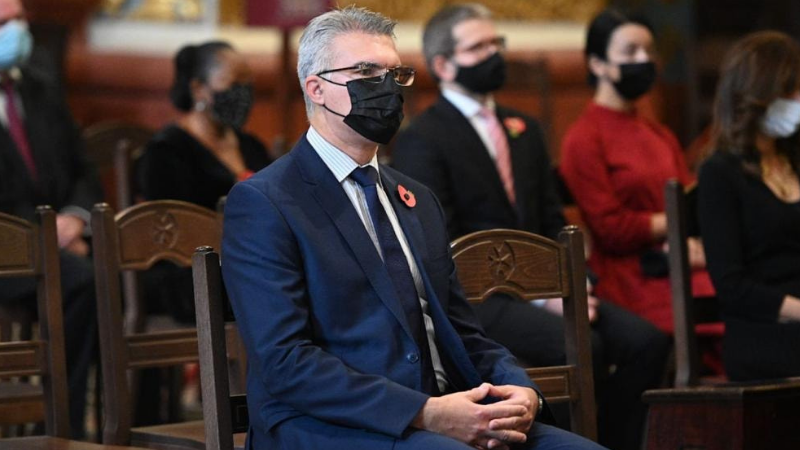Minister Carmelo Abela has failed to respond to questions from The Shift about research which described public broadcasting as ‘state-controlled media’. This comes after Abela claimed that TVM has broadcast a more diverse array of opinions since 2013.
In an interview with the Malta Independent on Sunday, Abela claimed that the Nationalist party has ‘built a narrative’ meant to discredit the Public Broadcasting Services (PBS), under whose umbrella TVM and all TVM sub-channels fall under.
On a separate note, but during the same interview, Abela also maintained that an internal, unpublished audit – which was supposedly set up to review whether authorities had abused taxpayer money to improve Malta’s odds of winning the Eurovision song contest earlier this year – established that no evidence of improper spending was found.
Another point of self-praise for Abela during the interview included claims about PBS being in sound financial health in spite of reports suggesting otherwise.
One of the questions that Abela’s official spokesperson chose not to answer or acknowledge were about The Shift’s previous reporting on how the Centre for Media, Data and Society described PBS as state-controlled due to its dependence on the state in terms of its funding, governing structure, ownership and editorial control.
The Media Pluralism Report, published in July of this year, echoed similar sentiments, assigning a 92% risk score for public broadcasting in Malta on its independence of public service media governance and funding indicator, up nine percentage points from 2020’s 83% score.
The Shift also published an investigation into PBS’ financial health. The investigation revealed that PBS’ financial struggles had grown worse under Abela’s stewardship. The latest audited accounts for the year ending September 2020 show that PBS ended the year with €3.8 million more in liabilities than assets, meaning that it’s effectively insolvent.
This dire situation occurred despite a significant increase in government subsidies, which reached €5.5 million in 2020, a staggering €1.4 million more over the €4.1 million already pumped from public coffers into PBS in 2019.
During the interview with the Independent, the minister described the increasing amount of taxpayer money being pumped into PBS as a way of fulfilling the government’s ‘vision’, deflecting attention away from the fact that this was necessary to counter the way in which the state broadcaster’s finances were bleeding out.
Abela also declared that PBS made a profit of €1 million in 2020, an oft-repeated defence when PBS’ finances are questioned, one which fails to acknowledge both the imbalance between liabilities and assets as well as the fact that figures close to the Labour party have virtually monopolised prime-time hours on PBS.
As for the Eurovision song contest issue, news reports which were later confirmed by Abela’s decision to open a probe had stated that €650,000 were spent on promoting Malta’s entry to the contest, with internal ministry reports suggesting a portion of the astronomical budget was allocated to placing bets on Malta to manipulate odds.
However, the minister failed to acknowledge questions about why the report’s findings were not published, who carried out the audit and how it was done, while also failing to generally comment on why it was thought necessary to spend that kind of money in the first place.













